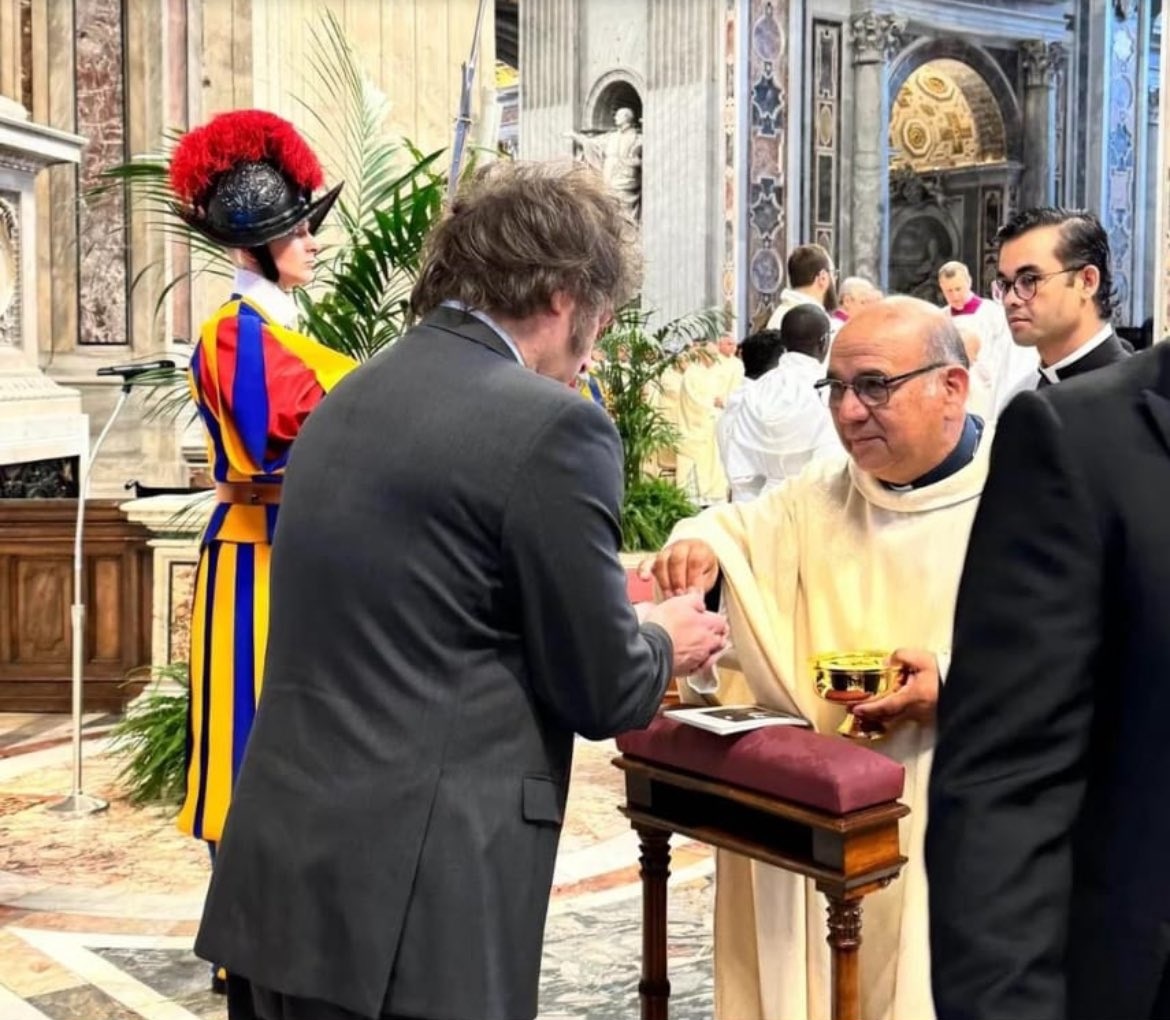(ZENIT News / Rome, 02.12.2024).- In April of 2013 Pope Francis created a Council of Cardinals, which in September of that year he institutionalized permanently. The Council’s mission is, in fact, to advise the Holy Father on topics that he offers the group for consideration. At present it’s made up of eight Cardinals (Parolin, Vérgez, Ambongo, Gracias, Omella, Lacroix, Hollerich and da Rocha). The Pontiff began the week with a meeting with this Council.
Over three days, three topics were addressed: Evangelization, the Synod on Synodality (the second and last part of which will be held in October 2024), and the role of women in the Church. To address the third topic (which chronologically was the first), the Pope invited two women Catholic theologians. One of the theologians, Linda Pocher, invited in turn an Anglican woman “bishop” called Jo Bailey Wells.
That peculiar presence was what initially stole the spotlight from the entire meeting: however, when we were just wondering what Mrs Wells was doing there, a statement and an interview had already been published of the indiscreet “bishop.” But it was not only she who talked about what transpired in the meeting of a private character with the Pope and his Council. Pocher also spoke, even giving more details about what was addressed. In fact she went further, stating that the Pope was in favour of the Diaconal Ordination of women. Hence attention passed from the Anglican “bishop” to the Diaconal Ordination of women.
On February 7, the day the Pope’s meeting with the Council of Cardinals concluded, a book was released with a Prologue by Pope Francis. One of the book’s authors was in fact Linda Pocher. The book talks about the topic of the “demaculinization” of the Church. In tight synthesis , the Pope acknowledges in that Prologue that the point of departure in the process of the “demaculinization” is clear (the Petrine and Marian principles) but not the point of arrival.
Speaking of books, announced this week was that a book-interview with the Pope will appear in April 2024. The book’s central topic is the relationship between Pope Francis and Pope Benedict XVI. The interviewer is Javier Martínez Brocal, ABC’s current correspondent in the Vatican, who for many years directed the Rome Reports Agency. Also this week a new interview with the Holy Father appeared, this time with the Italian magazine Credere [“Believe”]. What is bad about so much interviewing is not the Pope but how terrible the interviewers are: they ask him and ask him the same thing and, well, the Pope returns to the same thing.
However, the Pontiff’s agenda had other no less relevant moments: in the same week he treated aspects of priestly formation. On the 8th he received the participants in the Plenary Assembly of the Dicastery for Divine Worship and the Discipline of the Sacraments. At one point in his address he said:
“It’s necessary to ensure that the formation of ordained ministers also has increasingly a liturgical-sapiential imprint, both in the curriculum of theological studies as well as in seminarians’ vital experience.”
We highlight this for a reason: for those who wanted or believed that the liturgy is not an ambit of interest for the Pope, the reality says something else. We saw this also indirectly with the tweaking of the ears that the Dicastery for the Doctrine of the faith did to priests, whose inventive indiscipline makes the Sacraments invalid because of the altering of their form or matter.
Also on February 8, the Holy Father received a numerous group of priests taking part in an International Congress on Priestly Formation, organized by the Dicastery for the Clergy. He spoke to them about three ways to revive the priesthood, namely: the joy of the Gospel, belonging to the People of God, and the generativity of service or pastoral generative. On the first the Pontiff reflected further on the necessity of human formation and here there is an important task:
“I ask you to dedicate all your energies and resources to the care of human formation. And, also, to the care of living humanly.”
The Holy Father ended the week with a Canonization, an embrace and a “miracle.” On Sunday, February 11, Pope Francis canonized Argentine Maria Antonia de San Jose de Paz y Figueroa, better known as Mama Antula. Present in the Canonization Mass was the Argentine President Javier Milei, who received a great greeting and embrace from the Pope at the beginning and at the end of the Canonization Mass. Must Mama Antula be thanked for a further miracle: the embrace between Milei and the Pope? No, the conversion of Javier Milei who received the Holy Eucharist during the Mass. If there were space here for irony we would ask ourselves if, in the spirit of Fiducia Supplicans, it was about a “pastoral” or a “liturgical communion? However, as it is about something so important as Holy Communion, made evident, rather, is the need of a new elemental catechesis, and not only for Milei.
Thank you for reading our content. If you would like to receive ZENIT’s daily e-mail news, you can subscribe for free through this link.




